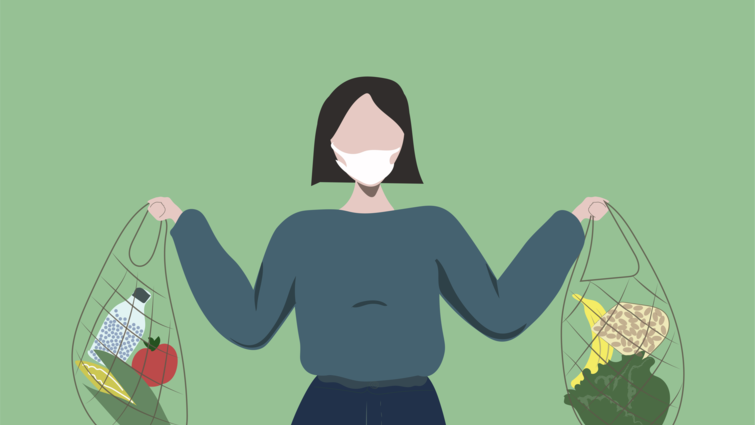
Foods that reduce inflammation.
Many people are looking for ways to protect themselves from COVID-19. In severe cases, the virus causes hyperinflammation, which can make breathing more difficult, lead to lifelong lung problems, and even be fatal.
Brenda Rea, MD, DrPH, PT, RD, a lifestyle and preventive medicine physician at Loma Linda University Health, says diet plays a significant role in promoting or reducing stress at the cellular level. "Certain foods can create an inflammatory response in the body, while others reduce inflammation and enhance health," she says.
Rea recommends avoiding foods that trigger inflammation — such as high-sugar foods, drinks, refined carbohydrates, or red meat — and focus instead on adding some of these anti-inflammatory foods to your diet.
Spinach
Spinach is a powerhouse of nutrients loaded with vitamin K, vitamin A, vitamin E, carotenoids, fiber, and other phytochemicals. The anti-inflammatory superfood is best when eaten raw, juiced, or lightly cooked. Natural antioxidants in spinach — and many other leafy green vegetables — have been shown to reduce inflammation in the body.
Berries
Blueberries, boysenberries, cranberries, pomegranates, cherries, raspberries, and other berries provide a sweet taste without adding too much sugar to a diet. Sugar is known to promote inflammation, which can make the body more susceptible to illness and disease. Many berries contain a blue-purple pigment called anthocyanins, which reduces existing inflammation as well. Blueberries also have potent antioxidants called pterostilbene, which reduce inflammation.
Nuts and seeds
Walnuts, almonds, pistachios, and many other nuts and seeds reduce inflammation and supply healthy fats to the body. Raw nuts without added oil or salt are best. Seeds, such as chia and flaxseed, are proven inflammation fighters and can be easily added to many foods to add an anti-inflammatory boost.
Turmeric
Turmeric contains polyphenol curcumin, which has powerful anti-inflammatory, antibacterial and antioxidant properties. The golden-yellow-colored seasoning has been shown to reduce tumor reproduction and induce tumor cell death.
Avocados
Avocados are filled with antioxidants that reduce the body’s inflammatory response and have also been shown to reduce inflammation in young skin cells. Avocados in their whole, unprocessed state are more likely to be anti-inflammatory, and they can alleviate pain and illness caused by inflammation.
Many diets claiming to reduce inflammation in the body and enhance general health, but they can be restrictive or confusing. Slowly introducing anti-inflammatory foods can be easy and make a significant difference in a person’s health — especially amid COVID-19.
Consider a lifestyle visit consultation with one of our Lifestyle Medicine physicians at the Center for Health Promotion. They will work closely with your primary care physician to improve your overall health and wellbeing. Please call the Center for Health Promotion at 909-558-4594 to make your Lifestyle Consultation visit today.
For more coronavirus information, visit lluh.org/coronavirus.
